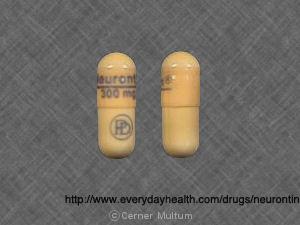Neurontin Lawsuit
A Brief Guide to Filing a Neurontin Lawsuit:
Neurontin, the brand name for Gabapentin, comes as a capsule, tablet and oral solution to help control certain types of seizures in epilepsy patients. This medication is also used to relieve the pain of PHN (postherpetic neuralgia; the stabbing or burning pain that occurs after shingles). Neurontin belongs to a class of medications known as anticonvulsants; the drug treats seizures by decreasing abnormal excitement levels in the brain. Neurontin relieves the pain associated with PHN by altering the way the body senses pain.
Ever since being introduced to the American market as an antiepileptic medication, controversial Neurontin side effects have led to extensive litigation against manufacturer Pfizer.
In 2009, the FDA mandated that a warning be added to the drug’s packaging to illuminate Neurontin side effects, placing an emphasis on the increased risk of suicide.
The litigation—because of the delayed reaction by the FDA-- that followed was not the first Neurontin lawsuit to be undertaken. The first lawsuit was filed in 1996 and concerned the illegal marketing of the medication for unapproved purposes. While prescribing a medication "off-label" is not illegal, Pfizer violated the law by spending money to market the drug for such purposes. The Neurontin lawsuit was filed by a former employee who also charged that the company had persuaded physicians to bill Medicare and Medicaid for off-label prescriptions of the drug.
In 2004, a large Neurontin settlement consisting of $430 million total was negotiated. None of the proceeds from this Neurontin lawsuit were reserved from patients who might have been harmed by taking the drug. Similarly, a 2010 Neurontin settlement towards the Kaiser health care settlement consisting of $141 million accused the company of inappropriately encouraging physicians to prescribe the drug for unapproved purposes. Again, none of the settlement money was set aside for potential victims of Neurontin side effects.
Following the FDA's announcement of the increased risk of suicide, patients seeking a Neurontin settlement began filing litigation. To handle the number of cases regarding Neurontin side effects, the District Court of Boston was appointed to hear all cases in a process known as multidistrict litigation. This action consolidated every Neurontin lawsuit into an all-encompassing suit.
The first hearing regarding a Neurontin settlement began in July 2009. However, the hearings regarding compensation for Neurontin side effects ended after one day when the plaintiffs dropped their case in exchange for a donation from a lawyer who did not wish to be identified. The next Neurontin lawsuit resulted in an out-of-court agreement in April 2010. Though the terms of the Neurontin settlement were not officially announced, estimates—rendered by various medical and media professionals-- placed the amount at roughly $400,000. A month later, a similar Neurontin lawsuit was settled for an undisclosed amount prior to the beginning of trial.
Subsequent plaintiffs seeking compensation; however, have been less successful. Two out of the first three cases seeking a Neurontin settlement for a person who faced increased suicidal urges while taking the drug were resolved in favor of the company. Though over 1,000 people filed suit after the FDA's warning, it is unknown how many still seek compensation for Neurontin side effects.
People who wish to seek a Neurontin settlement may have already exceeded the statute of limitations for such lawsuits. Since the 2009 FDA warning regarding of suicidal Neurontin side effects, it will be harder to claim a patient was unaware of this risk.
Sources:
1. http://www.fda.gov/NewsEvents/Newsroom/PressAnnouncements/2007/ucm108905.htm
2. http://www.dir.ca.gov/dwc/DWCPropRegs/MTUS_Regulations/MTUS_ChronicPainMedicalTreatmentGuidelines.pdf
3. http://online.wsj.com/article/SB10001424052702304017404575165992338949212.html
Related Topics
- Temodar Lawsuit
- Advair Lawsuit
- Zoloft Lawsuit
- Airsoft Gun
- Zometa Lawsuit
- Ortho Evra Lawsuit
- Oxycontin Lawsuit
- Lupron Lawsuit
- Gabitril Lawsuit
- Ketek Lawsuit
